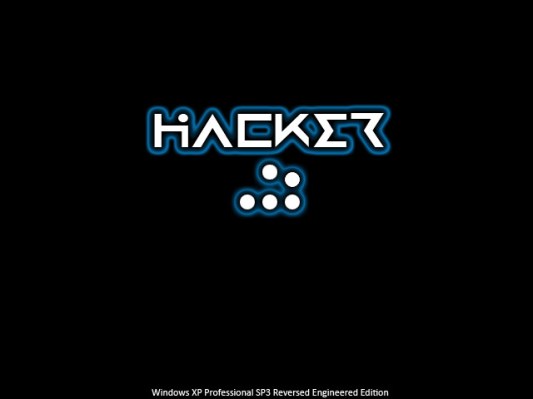Corey Thuen was a developer at the Idaho National Laboratory who helped to develop a network-visualization tool called Sophia. Then Battelle Energy, the company that manages the INL, rejected the notion of open-sourcing Sophia, and instead licensed it for commercial use to a company called NexDefense.
So Thuen created a separate-but-similar open-source tool called Visdom, written in entirely different languages. (He stresses: “Visdom is not a translation of Sophia from C to the languages in which Visdom is written. We did not have the Sophia code when we created Visdom.“) And what happened? That’s right: Battelle sued him.
No, wait, it gets even worse. Because Thuen identified himself as a “hacker” — he’s a security researcher who’s worked for the FBI, among others — the judge had his computer seized without notice on the grounds that:
there are national security implications associated with an open-source release … In addition, the defendants have identified themselves as hackers, as discussed above. A well-known characteristic of hackers is that they cover their tracks … The tipping point for the Court comes from evidence that the defendants – in their own words – are hackers. By labeling themselves this way, they have essentially announced that they have the necessary computer skills and intent to simultaneously release the code publicly and conceal their role in that act.
There is so much so wrong here that I scarcely know where to begin. Should we be more outraged by Battelle’s decision to license, rather than open-source, code developed with taxpayer money? By their breathtakingly broad patent application? By the idea that their belatedly–registered copyright should apply to similar code written independently in different languages? By the amazing contention that an open-source version of a network visualization tool would have “national security implications”? Or by the notion that those who call themselves “hackers” are advertising to the world their intent to break the law?
…This seems like a good time to link you to the Visdom Legal Defense fund, because Mr. Thuen has a very expensive road ahead of him.
But let’s also step back and take a look at the larger picture here. It’s not like this is the first hacker panic in recent memory, or the first time that the American legal system has decided to aim bizarrely huge howitzers at alleged hackers and/or computer-related crimes. Think of Aaron Swartz, threatened with 35 years in prison; Chelsea Manning, charged with the capital crime of “aiding the enemy”; Andrew Auernheimer, jailed for years for the crime of incrementing a URL; and Barrett Brown, indicted for copying-and-pasting a link.
It doesn’t help that the mainstream understanding of “hacker” does indeed mean “criminal,” whereas the tech-world definition is very different. But there’s a lot more going on here than just a semantic misunderstanding. I think hackers — and all computer experts — are increasingly perceived as more dangerous than other potential criminals … because, perhaps rightly, they’re seen as more powerful.
Hacker technology is increasingly seen to be encroaching on domains that were, until recently, the exclusive purview of nation-states. Who needs a central bank or fiat state currency when you’ve got Bitcoin? What happens when the state monopoly on violence is subverted by 3D-printed guns? (Hence the recent hilarious hysteria.) Or when Edward Snowden and his ilk decide that it’s their individual duty to watch — and report on — the NSA watchmen? Or when intellectual property rights are honored more in the breach than the observance?
What happens is that the empire strikes back, of course. Two years ago Cory Doctorow gave a talk to the Chaos Computer Congress in Berlin entitled “The Coming War On General-Purpose Computing.” (And the great Vernor Vinge was way ahead in his novel Rainbows End.) As Doctorow put it:
…all of our sociopolitical problems in the future will have a computer inside them, too—and a would-be regulator saying stuff like this:
“Make it so that self-driving cars can’t be programmed to drag race”
“Make it so that bioscale 3D printers can’t make harmful organisms or restricted compounds”
Which is to say: “Make me a general-purpose computer that runs all programs except for one program that freaks me out.”
I submit that:
- The ongoing saga of judges and elected officials coming down particularly hard on computer crimes and hackers is happening in part because, on some level, whether it’s conscious awareness or unconscious cultural context, hackers are seen not as mere miscreants, but as dangerous enemies of the fundamental established order of society.
- This “war on hackers” is actually just the first salvo in the war on general-purpose computing.
So throw Corey Thuen some money, would you? And then buckle your seat belt. Because if I’m right, then this next decade is going to be an awfully bumpy ride.
Image credit: Jesse Lee Morgan, DeviantArt.
